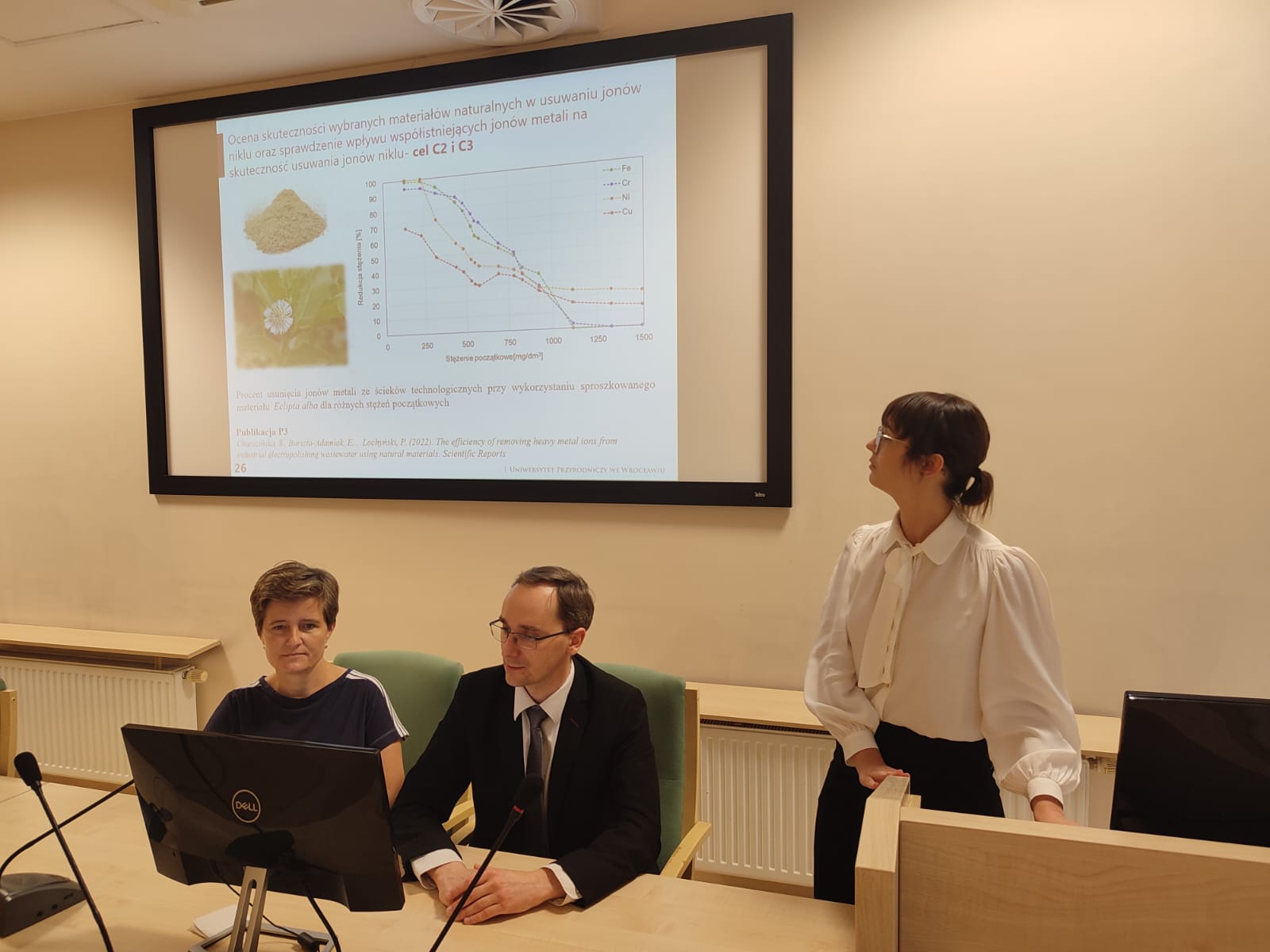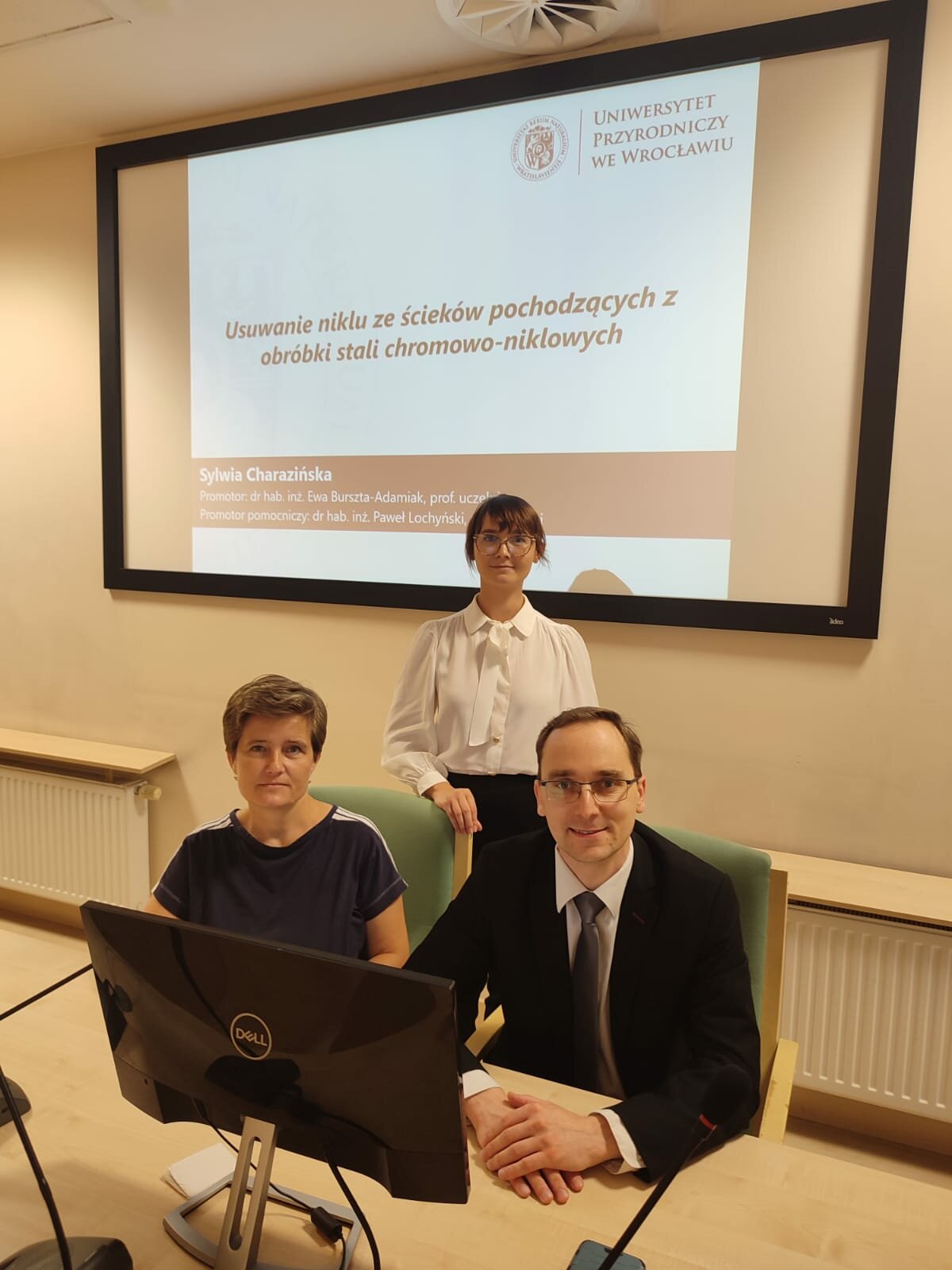Discipline Council for Environmental Engineering, Mining and Energy of the Wrocław University of Environmental and Life Sciences conferred the doctoral degree on the doctoral student. The dissertation was supervised by Assoc. Prof. Dr. Ewa Burszta-Adamiak and the assistant supervisor was Assoc. Prof. Dr. Paweł Lochyński.
The doctoral dissertation, consisting of a series of four scientific publications, dealt with the use of naturally derived materials for the removal of nickel ions and other metals from industrial wastewater. Among the materials used were peat from five health resorts in Poland (Połczyn Zdrój, Goczałkowice Zdrój, Wieniec Zdrój, Kamień Pomorski and Kołobrzeg), plant material Eclipta alba, as well as dried and calcined eggshells. Research on determining the effects of this type of wastewater at various stages of treatment on the aquatic organism Daphnia magna was carried out by the doctoral student as part of an international internship in cooperation with the Institute of Water Chemistry of the Technische Universität Dresden.
Sylwia Charazińska, M.Eng. proved that the use of natural materials in the wastewater treatment process makes it possible to reduce nickel ion concentrations in wastewater from chromium-nickel steel processing. All of the materials tested enabled the reduction of nickel ion concentrations, as well as iron, chromium and copper in process wastewater characterized by low pH 1-2. The doctoral student also confirmed that iron, chromium and copper ions co-occurring in the wastewater with nickel ions affect their removal efficiency from process wastewater. For the type of wastewater studied, it was shown that iron and chromium ions are removed first, followed by nickel and copper. Immobilization studies have allowed to conclude that reducing the negative impact of wastewater from the steel electropolishing process on aquatic organisms Daphnia magna can be achieved by using peat in the treatment process.
Congratulations on behalf of coworkers and Directors.

